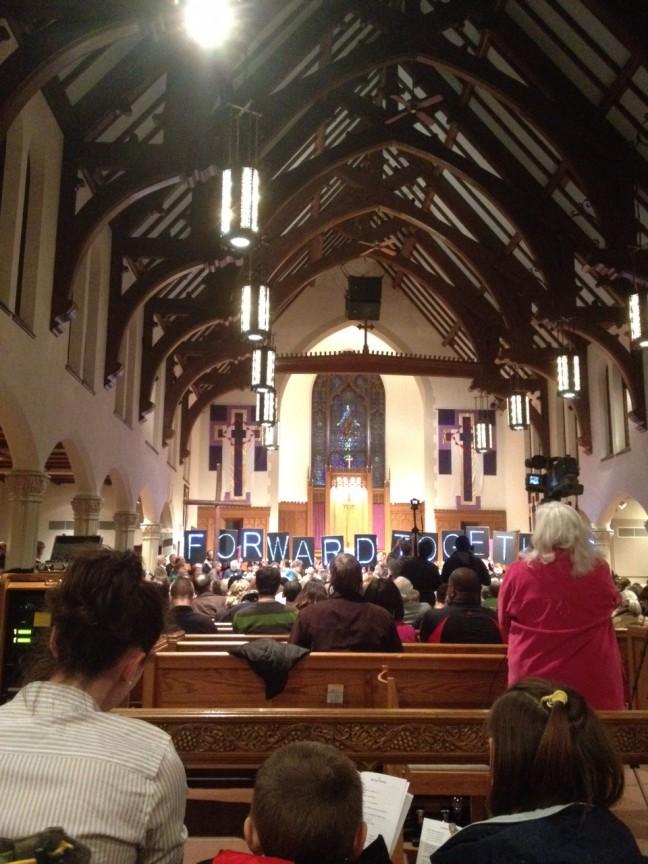Hundreds of passionate Dane County residents packed Bethel Lutheran Church Thursday night to hear William J. Barber, president of North Carolina’s National Association for the Advancement of Colored People, speak out against the social injustices in society and describe his vision of a more promising society.
Several Dane County activists introduced Barber, including chairwoman Gwen Jones of the Dane County NAACP Organizing Committee. Jones announced the committee’s plans to expand jurisdiction of the NAACP throughout the county so organizations promoting civil liberties would be more effectively supported.
With a crowd-engaging manner and a mix of occasional humor, Barber based his speech around the principles of coming together to achieve a “higher ground” and fight against “elitists” who use status and economic power to shape society’s policies.
“What the prophetic moral voice infuses in people is the kind of hope that is subversive, the kind of hope that says we no longer have to believe the lies and myths of domination,” Barber said. “We can break free from the domination we have given our allegiances to.”
Barber said in regards to efforts of promoting social and racial equity over the course of American history, every significant step in the right direction has been combatted with resistance from the elite upper classes.
Barber referenced post-Civil War Reconstruction and the civil rights movements of the 1950s to emphasize the progress African Americans have made, which he said was eventually thwarted by elitist opposition.
“Stopping any effort for reconstruction and fusion politics has always consisted of five attacks,” Barber said. “They attack voting rights, educational opportunity, labor rights, fair tax revenue that allows the government to have the money it needs to uplift all of us, and they attack or assassinate white and black progressive leaders.”
In order to fight back and make effective policy changes, Barber said changes must be originated from lower level state governments, not Federal institutions. Additionally, Barber said people should put disagreements over personal issues aside in order to come together and push for the common goal of eliminating anything that illustrates hate and discrimination.
Barber added that the path to equality involves action being taken in many different directions. The five key ways to achieve equality, he said, are establishing secure labor and tax policies for immigrants and the poor, ensuring educational equality by supplying high quality institutions for all students, more effectively supplying services such as Medicaid and Social Security to the public, eliminating racial disparity in the legal system and ensuring personal liberties and protection for all Americans under the law.
“We believe that each one of these virtues go together like the fingers of a hand,” Barber said. “When we fold our hand together, we create a mighty fist of solidarity that can pull us ahead.”


